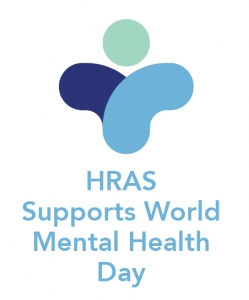World Mental Health Day Press Release
9th October 2020

London.UK. This year’s World Mental Health Day on 10 October comes at a time when our daily lives have changed considerably as a result of the COVID-19 pandemic. So starts the World Health Organization’s introduction to its 2020 theme for the day: increased investment in mental health.
“Given past experience of emergencies, it is expected that the need for mental health and psychosocial support will substantially increase in the coming months and years,” says the World Health Organization, citing fear, grief, isolation and anxiety about the future in many parts of the community. The Organisation is therefore calling for renewed investment in mental health programmes at national and international levels.”
The maritime world has already seen a dramatic increase in mental health programmes over the last few years. Even before the COVID-19 pandemic, we have recognised that seafarers work under challenging conditions in relative social isolation and that this places them at high risk of stress, a factor known to impact on mental health.
We have invested accordingly with the development of a number of industry awareness programmes, educational material and advocacy drives aimed at raising the profile of seafarer well-being.
In the face of the crewing crisis caused by the COVID-19 pandemic, the industry has come together like never before – making united and passionate pleas for governments to designate seafarers as key workers so that they can return to their families at the end of their contracts and then return to sea again when they are ready.
Additionally, employers, unions and other stakeholders have worked to provide specific, practical health and welfare advice related to COVID-19. They have also worked to facilitate crew changes only to have their efforts thwarted by governments unwilling to allow the travel arrangements proposed.
The result is that some 400,000 seafarers remain stranded on vessels. Some have been onboard for 17 months or longer, far beyond the maximum 11 months permitted under international law.
We are now faced with the situation that not only are seafarers’ basic human rights to a safe work environment, health care, freedom of movement and a family life compromised, they are increasingly being considered victims of trafficking and forced labour.
As well as prolonged isolation and the deprivation of their human rights, they face the physical and mental health risks associated with prolonged stress and over-work. Yet, many are afraid that if they stand up for their rights they will be left stranded on foreign shores or that they will be blacklisted, and their careers will be over.
Let’s look at just four cases of how this situation has affected individual seafarers:
- Former master of the MV Tomini Destiny Captain Rajnish Samuel Shah has lost his job and been banned from working on any vessel from the flag state involved. Captain Shah believes he acted for the safety of his crew in minimising their risk of contracting the COVID-19 virus by delaying a cargo loading operation in March and then helping to get those crewmembers whose contracts had already expired repatriated home.
- In May, a young female seafarer onboard the Regal Princess reportedly jumped to her death after her chartered flight home was cancelled.
- In August, the master of the MV Wakashio Captain Sunil Kumar Nandeshwar was arrested and charged with endangering safe navigation after the vessel ran aground off Mauritius, leading to an oil spill. Chief officer Tilak Ratna Suboda was also arrested, with local media reporting that the vessel sailed close to the Mauritius coastline to get a Wi-Fi signal.
Today, in recognition of World Mental Health Day, we stand by these four seafarers, and the other 399,996 who each face their own unique challenges. We call on governments to be accountable and urge them to resolve the situation – a small number of flag States have proven that seafarers can be returned home safely, so there is no reason for further delays.
We urge the industry to remain united and not allow the erosion of the employment and welfare laws that are in place to protect seafarers – now, more than ever before, they are needed to keep seafarers resilient, safe and ready for the future.
And we urge each individual to access the mental health resources that are available, to watch out for each other and to call for help when it is needed – being serious about mental health means standing with the individual experiencing difficulty.
Free Publications
Free to download, Human Rights at Sea has published: “Managing Traumatic Stress – Guidance for Maritime Organisations” , “Remaining Resilient after Traumatic Events” and “Mindfulness for the Maritime Industry”.
